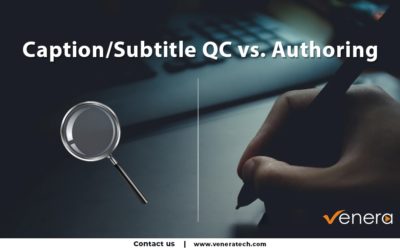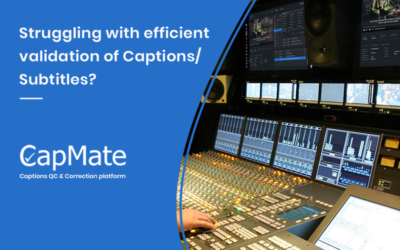
Quasar is AWS Qualified Software
Quasar Cloud Video QC Software – Overview

Quasar® is the first file QC service built natively for the cloud architecture. Encompassing all the latest features of Pulsar; industry’s most efficient audio and video quality control software, Quasar® video quality checker promises the fastest rate of QC in the cloud.
Quasar® not only ensures your content security through IAM cross-account roles, whitelisting and pre-authenticated URL, it is the most advanced cloud video QC software with support for advanced features such as HDR, IMF/DCP analysis, Adaptive bitrate QC, Harding PSE etc. Quasar® File QC can be used to verify the content before submitting to key VOD services such as Netflix, Amazon Prime Video, iTunes and HBO.
Features & Benefits

Dynamic scaling
Quasar® is an elastic system that can be auto scaled to any size without needing users’ intervention allowing hundreds of files being processed simultaneously. Performing QC on large content library or a content burst can be very time-consuming. With Quasar®, you never have to worry about varying content volumes. Just post them to Quasar® and it will be processed quickly. The QC jobs that would take months to process can be done in just a few days.
Dynamic scaling of File QC on Cloud
8 March 2019
Security & Latency
One of the biggest concerns for content QC on Cloud is the content security. Along with that, the content latency is also an important consideration. Following capabilities are available in Quasar® to address these issues:
- IAM cross-roles support
- Pre-authenticated URL
- Temporary security credentials
- No storage of user’s credentials anywhere in the Quasar® system
- No access to user’s content and the processing VMs
- Whitelisting for REST API access
- Auto provisioning of virtual machine in the content region. This has the following benefits
- No inter-region latency allowing faster cloud video content QC
- No egress charges
- Compliance with local laws that may prohibit the content movement outside the country/region

Service reliability
Quasar® is a highly reliable service that has implemented a large number of service recommendations in terms of service reliability and security.
- Advanced monitoring for early detection of any potential problems in the service performance
- Detailed system logging allowing us to trace back any rare issues
- Failover mechanisms allowing the workflow continuity in case of infrastructure failures
SaaS
Quasar® service is available as fully managed SaaS service as well as a Private edition that users can deploy in their own virtual private cloud (VPC).
Following are the key benefits of using SaaS service:
- Users don’t need to engage any of their staff for system mgmt. This alone can save significant time & cost for users, while focusing on their core business.
- Users can immediately start using the Quasar® system – either manually or via REST API.
- Committed SLAs for service upkeep.

Ref-Q
Ref-Q™ is a reference-based technology, allowing the ability for an automated side-by-side comparison of a file with its master/reference file, reporting back any discrepancies. For example, by comparing a media file with its master file, Ref-Q™ can automatically detect artifacts introduced in the file due to transcoding or other processes. Similarly it can also report any frame that includes signs or text in primary language which is replaced with a similar frame in the local language.
Ref-Q™ automates this previously manual (and error prone) comparison process, providing an efficient and cost effective automated means of getting a frame by frame report of all such differences, reducing manual inspection costs, and increasing the accuracy of the results.
VOD QC
In addition to support for broadcast formats, Quasar® supports VOD formats such as adaptive bitrate formats and fragmented MP4. Key capabilities include:
- Formats. MPEG-DASH, Apple HLS and Microsoft Smooth Streaming
- Encrypted packages support
- Auto-assignment of different QC templates to different encoding profiles
- Adaptive bitrate package specific checks to help validate the integrity of ABR packages

Harding PSE
We have integrated Harding FPA engine within Quasar®. This allows users to perform Photosensitive Epilepsy validation using the industry defacto standard Harding PSE. Users will also receive a valid Harding certificate for every file processed via Quasar®.

Our Customers

















Wide range of checks

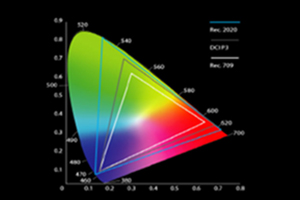
Color Gamut
Flash Frames

Audio Loudness
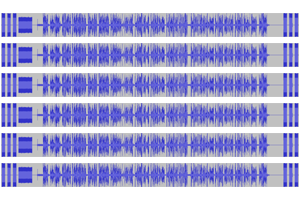
EAS

Active Region

Photosensitive Epilepsy
Audio Peaks
Audio Test Tone
Cadence

Language ID
Audio Clipping

Audio Drops

Color Gamut

Active Region

Cadence

Flash Frames

Photosensitive Epilepsy

Language ID

Audio Loudness

Audio Peaks

Audio Clipping

EAS

Audio Test Tone

Audio Drops
Quasar® Native Cloud File QC service supports a wide range of broadcast, archiving and VOD formats. It also allows a wide range of audio, video checks on media content.
Formats
Container: MXF, GXF, LXF, MOV, MP4, 3GPP, MPEG-2 TS, MPEG-2 PS, FLV, WMV, AVI, WAV, BWF, AIFF, Smooth Streaming, HLS, MPEG-DASH, IMF, DCP, Elementary
Video: H.265, H.264 (incl. AVC-Intra 50/100 and SONY XAVC), MPEG-2 (incl. D10, XDCAM, HDCAM, IMX-30/50), VC-1, DV (incl. DVCPro25, DVCPro50, DVCPro100/HD), Avid DNxHD (VC-3), Apple ProRes, JPEG-2000, Canopus HQ/HQX
Audio: LPCM, AES3, SMPTE 302M, MPEG-1/2, AAC, HE-AAC, WMA (Standard & Professional)
HDR: Dolby Vision, HDR-10, HDR-10+
Verification Checks
General: Compliance, Factory templates – Netflix, DPP, ARD-ZDF, Loudness (R128, CALM, OP-59, ARIB), iTunes & CableLabs
IMF/DCP: CPL based analysis, Package validation, CPL cross-checks, CPL checks, PKL cross-checks, OPL checks, Assetmap check, IMSC checks, Sidecar checks DNxHD (VC-3), Apple ProRes, JPEG-2000, Canopus HQ/HQX
ABR: Playlist cross checks. Segment cross checks, Profile cross checks, Encrypted Packages
Video Parameters: Codec, Video Format, Color space, Chroma Format, Color Matrix, Scan Mode, Duration, Frame Rate, Resolution, Display/Pixel Aspect Ratio, GOP Length, GOP Type, Field Order, Frame Sizes, Buffer Size, Bitrate (CBR/VBR), Profile/Level, Entropy Coding, Reference Pictures, MBAFF, Timecode Discontinuity, Timecode frame drop, 2020 Color Space
Video Quality: Black Frames, Blockiness, Brightness, Cadence, Chroma Hits, Chroma Line, Clipping, Colored Frames, Color Bars, Color Gamut, Combing, Credit Roll, Camera Dead Pixels, Dead Pixels, Digital Hits, Field Dominance, Flash Frames, Freeze Frames, Luma/Chroma levels, Half/Full lines, Bar Artefacts, Letter/Pillar Box, Active Region, Photosensitive epilepsy (Harding) (SDR and HDR), Media offline, Slate, Postal Stamp
HDR Parameters:HDR Formats, Reporting of HDR10, HDR10+, and Dolby Vision metadata
Static Metadata: Verify (display Color primaries, mastering display luminance, content light level)
Dynamic Metadata: Compliance, Validate HDR10+ metadata (MaxSCL, Average Max RGB, Distribution values, Tone-mapping information, Targeted system display maximum luminance), Validate Dolby Vision metadata (Metadata version, shot must not contain <0,0,0> in level 1 metadata, Detect duplicate dynamic metadata, Crosscheck canvas aspect ratio, Crosscheck Video track information, Crosscheck (Calculated/metadata) Image aspect ratio
Audio: Codec, Sampling Frequency, Quantization Bits, Channels, Bitrate (CBR/VBR), Drops, Silence, Mute, Test Tones, Loudness (R128, CALM, AGCOM, ARIB, Speech Gated), Loudness Range, Dialnorm, Sample Peak (DBFS, PPM), True Peak, Dual Mono, Clipping, EAS tone, Phase Mismatch, Language ID
Container: Conformance, Format, File Size, File Name Validation, No of streams, Incorrect extension MXF: Version, Operational pattern, Timecode presence/track count/mode/start value/source, Index table presence/location/completeness/correctness, Origin parameters, KLV alignment grid/fill elements, Partitions validity/Status/Completeness/Instance count/Index table presence/Essence presence/Max length, Essence wrapping/external check/referencing/partition strategy, Audio track numbers/element size/channel count/configurations, Descriptive metadata presence/scheme, Run-in sequence, Random index pack, Segmentation track, File package count, Index edit rate, Index duration, Audio/Video sample rate, Audio/Video stream type, Audio/Video edit rate, Video line map, System item presence, Block Align, Channel status mode, Fixed channel status data, Stored F2 offset, Display F2 offset, Sampled X/Y offset, Display X/Y offset, Identical GOP indicator, Edit unit byte count, Slice count, Dark metadata, Timecode frame drop, Audio locked/unlocked status, Audio ref level, Index start position, Single index location, Single essence location, Forward index direction, Image start/end offset, Colour siting, Padding bits, Black ref level, White ref level, Colour range, Constant B picture flag, Single sequence, Low delay, AS-02 Support Transport Streams: SCTE35, Program count, PCR Jitter, Packet Length, PID Usage, PIDs, PID Bitrate, Packet Intervals, PAT checks, PMT checks, Stream checks, PES checks, Language Metadata Verification
QuickTime: Checks and correction for PASP, FIEL, GAMA, CLAP, COLR. Channel Configuration, Track properties, Movie properties, Language Metadata Verification, Check disabled tracks, Check multiple codec entries, Check Timecode properties
Cross Checks: Video-Container: Width, Height, Frame rate, Aspect ratio, Bitrate, Profile/Level, Scan mode, Field order, Chroma format, GOP type, GOP length, B-pictures, Low delay, Duration, Component depth Audio-Container: Sampling frequency, Bit depth, Channels, Bitrate, Duration Audio-Video: Duration in meta-data, Actual duration
Meta-data: Closed Captions (608/708) presence/conformance/format/location, AFD, Bar, V-Chip, Teletext
Reference-Based Analysis: Ref-Q, SSIM, PSNR
Cloud platforms


Storage formats
Quasar® Native Cloud File QC service supports QC of content stored on AWS S3, Azure Blob storage, BackBlaze storage and Google Cloud storage.
- AWS S3
- Azure Blob
- Google Cloud Storage
- Backblaze Storage
Workflow Integration

Other Quality Control Solutions

We additionally offer the following QC solutions for Audio, Video, Captions & Subtitles for Cloud & On-premise applications:
Pulsar PPU
Pulsar PPU is a usage based on-premise File QC system and provides the same QC capabilities as Pulsar. Users can pay on adhoc basis purely according to the content volume processed or they can sign-up for a monthly subscription.
Customer Testimonials

Quasar® Editions

| SaaS | Private | Description | |
|---|---|---|---|
| Pricing model | Subscription | Subscription | Monthly, Annual & Longer-term plans |
| Infrastructure cost | Venera | User | Includes the costs for running various Quasar® components such as Quasar® Controller, Verification Units, Database etc. |
| Infrastructure management | Venera | User | Staff required to manage the Quasar® QC infrastructure. In case of SaaS, the entire management is done by Venera. For Private edition, user will designate their own staff to manage the Quasar® systems and related infra |
| QC Engine hosting | Venera’s cloud infrastructure | User’s cloud infrastructure | The location where Quasar® systems will be hosted |
| Web portal hosting | Venera | Venera | Hosted and managed by Venera in all cases |
| Content storage location | Owned by user | Owned by user | The location where user’s content will be stored |
-
Infrastructure managed by Venera
-
Software and upgrades managed by Venera
-
Storage bucket owner by user
-
Subscription & adhoc plans available
-
Infrastructure managed by the user
-
Software and upgrades managed by the user in their VPC
-
Storage bucket owner by user
-
Subscription plans availables
-
Adhoc plan not available
Recent Blog Post

Media Offline: What is it and how to deal with it?
What is media offline error in video content, and how you can detect it using automated QC solutions?
Caption/Subtitle QC vs. Authoring
What is the difference between a Caption Authoring system and a Caption/Subtitle QC system? Do you need both of them as a content creator?
CapMate 101 – Caption/Subtitle Files Verification and Correction Solution
Learn about Capmate – our innovative and comprehensive cloud native caption QC software that provides verification and correction of captions and subtitle files.
Video Resources














